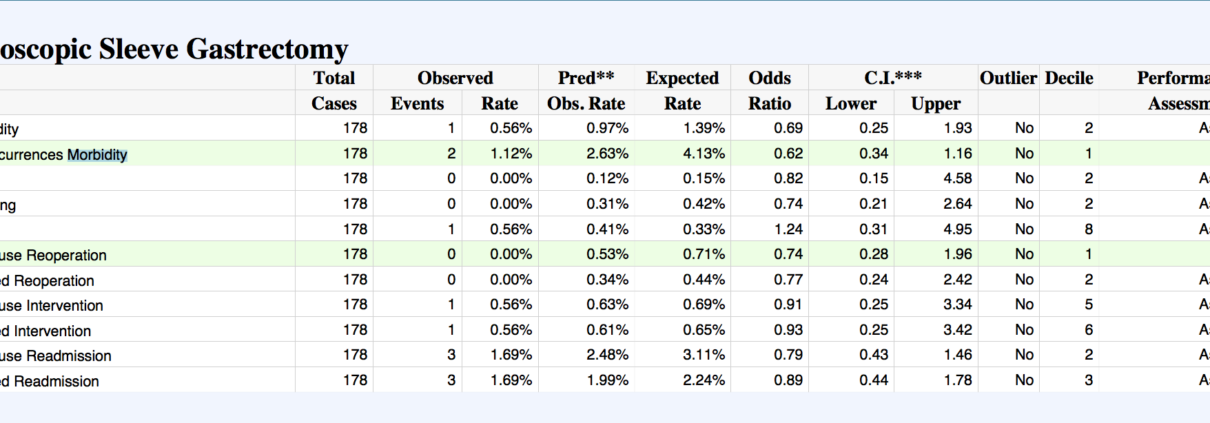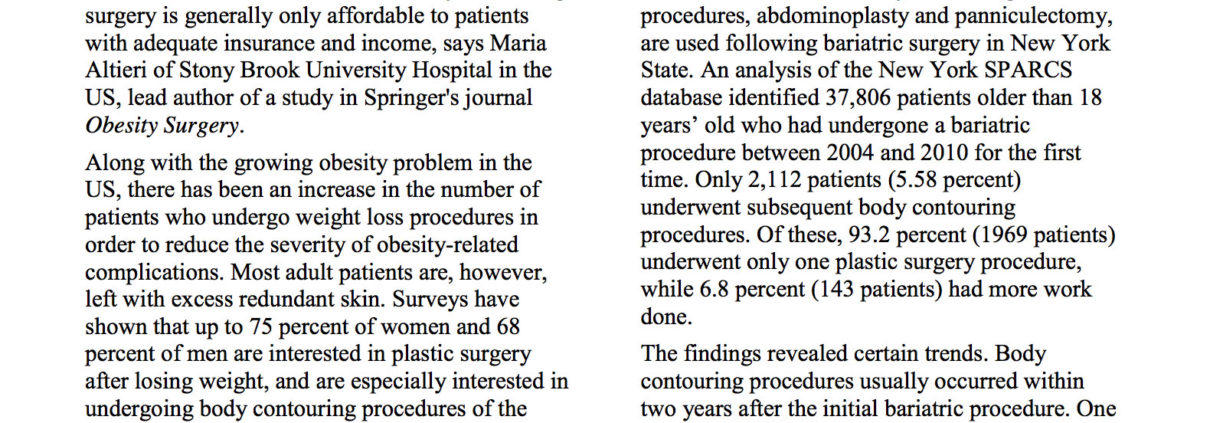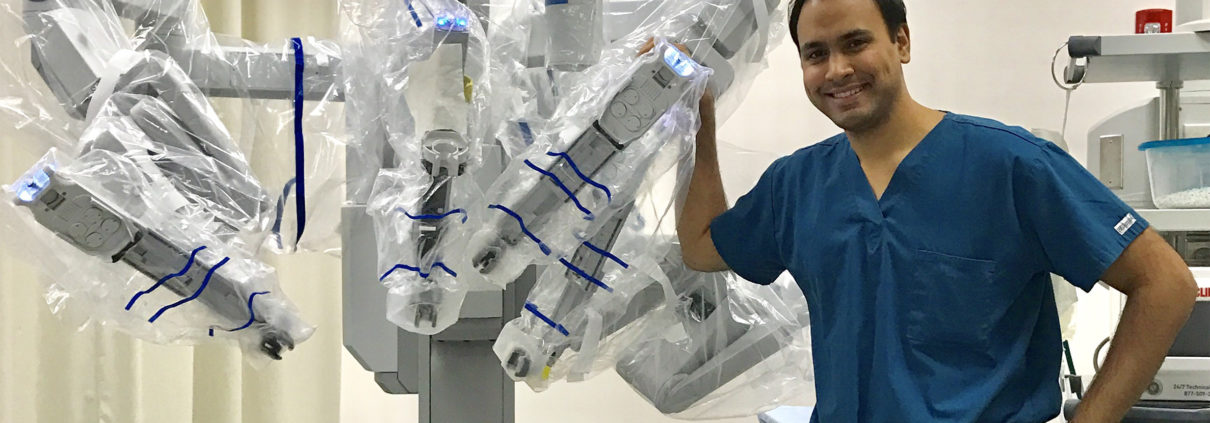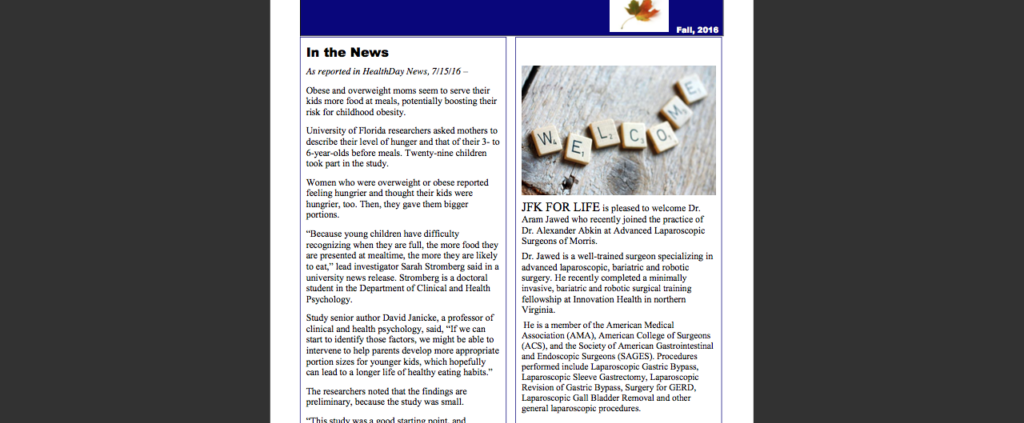Alexander Abkin, MD from Advanced Laparoscopic Surgeons of Morris Performs First ReShape Procedure At Florham Park Surgery Center (NJ)
FLORHAM PARK, NEW JERSEY.— February 9, 2016 — Advanced Laparoscopic Surgeons of Morris today announced that the first commercial New Jersey patient has received the ReShape Intragastric Dual Balloon System following its approval by the U.S. Food and Drug Administration (FDA) in July. ReShape provides a new option for adults with a BMI of 30-40 and a related health condition who haven’t succeeded at diet and exercise alone, and do not want or do not qualify for bariatric surgery. Performed at Florham Park Surgery Center by Dr. Alexander Abkin, the approximately 20-minute non-surgical procedure is the first in New Jersey to be successfully done. Read more

















